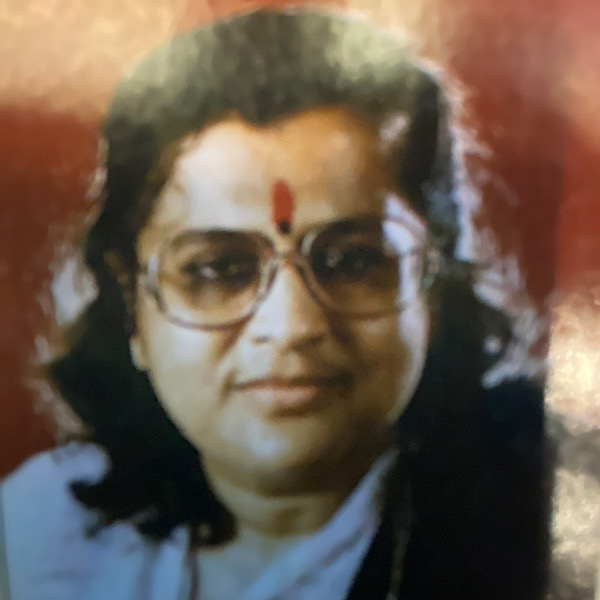By Goswami Indira Betiji
Hindus are not only Indians. anyone who be-lieves in the culture of the rishis and the message of the Vedas is a Hindu. The real meaning of Hindu is one who is trying to go forward towards Godhead. Any spiritual seeker who is trying to become enlightened by means of spiritual action and who tries to lead a pure life according to the Vedic injunctions is to be known as a Hindu. Hindu dharma is not the property of one particular nation. It is meant for the upliftment of the whole world. But how do we bring this Sanatana Dharma, the Eternal Religion, into daily life?
Our human life can be divided into three aspects–physical, spiritual and divine. Human life should not only be physical, or material, but it should be spiritual and divine as well. Bhagawan Sri Krishna has shown three paths to make human life divine–yagna (sacrifice), daan (charity) and tapas (penance and austerity). Our duty towards God is yagna; our duty towards society is daan, and our duty towards self is tapas.
The greatest contribution of Sanatana Dharma is yagna. In the beginning, offerings were made into the sacrificial fire. Yagna [“to offer”] involves dedication. The essence of yagna is to maintain the feeling of surrender and dedication. We can perform yagna by making certain sacrifices throughout our lives for the Godhead.
The meaning of daan [“giving”] is to divide whatever we have, giving in charity for the pleasure of the Infinite Divine. Charity should be done for the upliftment of humanity and as an expression of love for the Divine Godhead. We should be sensitive to human sufferings and social injustice and promote the benefits of social service, global brotherhood and natural respect for all humanity, irrespective of caste, creed, race or religion.Whatever we have achieved or accumulated should be distributed for the benefit of others, and we should take up vows of service.
Tapas [“fiery discipline”] means to maintain control of our body, mind and words for the pleasure of the Divine. There are three types of tapas–physical, mental and verbal. The physical body can be engaged in Sanatana Dharma by keeping oneself pure, remaining simple and refraining from any form of violence against any living being. One can worship the Godhead, honor our teachers, such as brahmanas, the spiritual master, and superiors, such as our mother and father. By keeping the mind grave, simple, serene and self-controlled, we develop the ability to maintain pure thoughts. We control the tongue by speaking the truth for the benefit of others with no intention of causing pain. We purify our speech by regularly reciting the scriptures and Vedic mantras. By practicing these threefold austerities of goodness, we please the Divine Godhead. In such a pure state, one can gradually approach the Divine.
We can contemplate and understand what is right and what is wrong. This ability is known as the power of discrimination, or viveka. Human beings are full of energy, actions and efforts. By viveka we understand that our actions and efforts should be for the greater good of all. Let us all invest our energy in the greatest good, our eternal religion, our Sanatana Dharma, the eternal duty of all, regardless of caste or creed.
We must try to realize these values in our hearts and then practice them in our daily lives. Our temples should not only be social meeting places, but places of worship and inspiration. We must then bring that worship and inspiration into our homes, so our children will learn and also become inspired. Otherwise, the children will be awash in Western culture, without any anchor or solid understanding of their own tradition. They will become lost and confused. It is our duty to teach by example. In the home, we should have daily puja [“worship”] and seva [“service”]. In the evening, the family should come together for prayer and scriptural study. Even if it is for a short time, it should be a daily practice. Religion is not only theology and philosophy. It is not mere intellectual conformity or ceremonial piety. Its sweetness is tasted through regular daily practice. It must be a spiritual adventure for the whole family, making it strong spiritually and letting children learn the ways of Hindu Dharma.
Man is gifted with the ability to think, act and feel. He does this with body, heart and intellect. Through action one can selflessly work for the benefit of all living and nonliving beings and thus realize absolute prosperity. With purified emotion, one can unconditionally devote one’s self to experience God and thus enter into sat-chit-ananda, the enlightened state of eternity, bliss and knowledge. One can utilize one’s intellect to realize the eternal Truth, the universality of God, the Supreme Reality, the Omnipresent, Omnipotent and Omniscient Godhead.
God is not the property of any one country, any one sex or any one race. The Eternal Religion is for everyone, just as the air is for all to breathe, and just as sunshine is available for everyone’s benefit. Vasudhaiva Kutumbakam–the whole world is our family. There are no barriers. One simply has to go out and bask in the sun’s rays. Similarly we can bask in the Grace of Godhead. God is the Eternal Truth (Satyam), the Absolute Prosperity (Shivam) and the Everlasting Beauty (Sundaram). Let us be united by Divine Love of Godhead. As followers of Vedic truth, we look to the scriptures for guidance and validation. Let us appreciate the antiquity of Vedic culture, for it has withstood the test of time. Let us be proud of our enduring Vedic heritage.
GOSWAMI INDIRA BETIJI, 58, the 16th descendent of Sri Vallabhacharya, one of the five great Vaishnava Acharyas, is regarded as the embodiment of Goddess Yamunaji, the Goddess of Grace.


